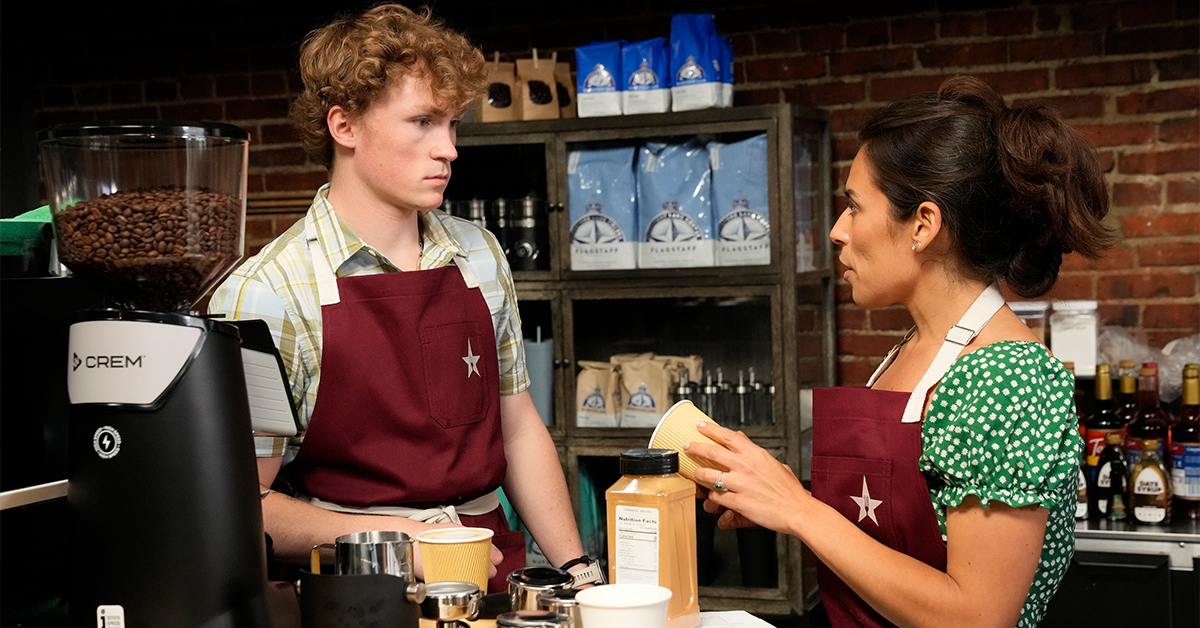While ramping up commercialization efforts, horchata cold brew brand Bandida has joined Gordon Ramsay’s new competition reality series, Food Stars, vying for the chance to receive a $250,000 investment from the celebrity chef.
Founded in 2019 by Latina entrepreneur Megan Meza, Bandida produces ready-to-drink Horchata Cold Brew, a dairy-free, better-for-you take on a classic Mexican beverage. Crafted with rice milk powder, cashew paste and coconut cream, the shelf-stable drink retails for $30 per 6-pack of 10 oz. bottles and is currently available in a handful of grocers and Mexican restaurants in the Brooklyn, Poughkeepsie and Cold Spring areas.
Bandida is positioned as a beverage that enables consumers to incorporate horchata, which might normally be considered a treat, into their daily lives while also aiming to inject a bit of playfulness into the RTD coffee market.
“Ready-to-drink coffee in general is driving the market of coffee consumption and international coffee beverages are really driving that,” Meza told BevNET. “Coffee is still something to be serious about, [when considering] where your beans come from, how it’s roasted [and] who you’re working with, but I think people are open to doing more play in their coffee. There’s more fun in their coffee because there are more coffee drinking occasions.”
A recent report by Future Market Insights predicts the global RTD coffee market will grow at a 5% CAGR, reaching a valuation of $43.78 billion by 2033. In the two-week period ended July 1, U.S. coffee sales decelerated slightly, up 1.4% in the two-weeks and 2.2% in the four-weeks, according to an analysis of NielsenIQ data by Goldman Sachs Equity Research.
Meza recently joined 14 other food and beverage entrepreneurs on Gordon Ramsay’s Food Stars, a reality competition show in which the contestants participate in business challenges in hopes of convincing the celebrity chef to make a personal investment of $250,000 in one of their enterprises. The show, which premiered on May 24, features 10 episodes. The finale is slated to air on August 16.
According to Bandida’s founder, less than 2% of VC funding goes to women and approximately 6% goes to Latinx entrepreneurs. She told BevNET she appreciates that “Fox and [Ramsay] have given so many voices to budding companies,” and “highlighted the diversity across the industry.”
Though Bandida has been self-funded to date, the brand is considering a family and friends funding round next year to cover co-packing expenses as it transitions into aseptic packaging.
Additionally, Meza has teamed up with the Center of Excellence for Food Tech and Agriculture at Cornell AgriTech to reformulate the beverage and increase its shelf life in hopes of scaling up from 1,000-2,000 bottle runs to 30,000-40,000 bottle runs. The product currently has a shelf life of approximately six months and is expected to make its move into aseptic packaging by the end of the summer.
“I think my focus right now is, rather than getting into a bunch of areas, I need to really make sure that the product is solid first. I have a ton of interest from distributors right now, which has been great […] Again, I want to make sure the product is right before I go to market,” said Meza.
Meanwhile, there’s the show, for which Meza was reluctant to reveal plot twists that will unfold over a series of four more episodes. In episode seven, airing Wednesday, the contestants will be split into two teams and tasked with running a pop-up coffee shop in downtown Seattle.
Post-show, once Bandida’s liquid reformulation is complete, the brand hopes to appeal to a wide array of consumers beyond just those familiar with horchata. This goal is reflected in the products’ list of modernized ingredients as well as its modernized packaging, which features pastel tones and organic shapes.
“I think you can be Mexican and be modern. You can harken back to what makes it a cultural product, what is part of your essence. But you can say, ‘I’m American too’ or ‘I’m modern too,’ there are so many ends that we can add on to our identities,” said Meza.

